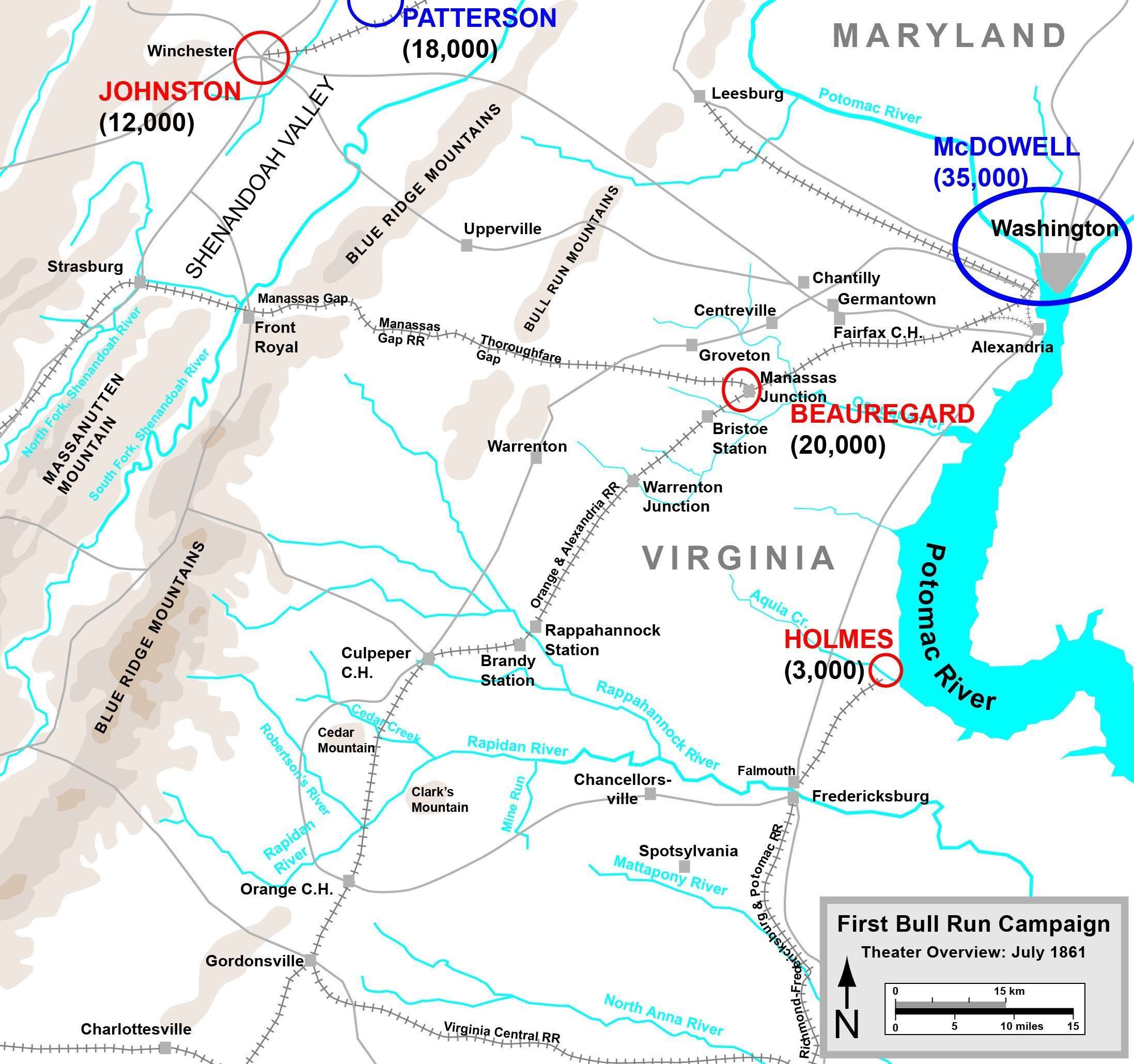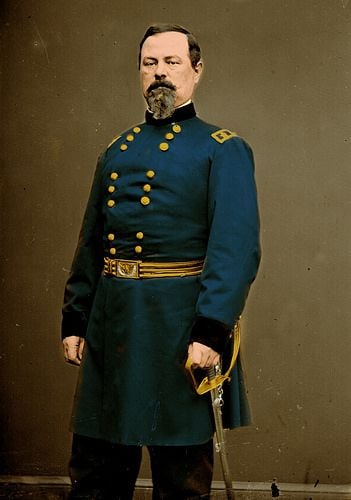Irvin McDowell is a name not widely remembered outside of history circles, but he made a significant impact during the Civil War.
McDowell was first commissioned into the United States Army in 1838 as a 2nd Lieutenant posted to the 1st US Artillery. By 1861 he had become an experienced logistics officer, but had limited combat command experience. He was promoted by three ranks to become a one star general, a promotion largely influenced by his personal relationship with the Secretary of Treasury. Two weeks later he was given command of the Army of Northeastern Virginia and pressured by Washington DC to launch an attack against the nascent Confederate military forces camped in Northern Virginia. Despite McDowell knowing that many of the troops under his command had just recently been recruited and had limited training, he moved to begin offensive operations against Confederate forces.

This offensive would become the First Battle Of Bull Run, which would become a Union disaster. McDowell had a complex plan of attack which required fast maneuvering by his forces to succeed in cutting off the numerically inferior Confederates near Manassas Junction. However McDowell’s forces moved too slowly and Confederate reinforcements arrived, giving them an equally sized force. McDowell changed his plan of attack, shifting the Confederate flank he intended to hit. During the battle on the 21st of July, McDowell’s forces lost control of the situation and by the end of the day were forced into a retreat which turned into a panicked rout. In what was expected to be an easy victory, McDowell had commanded over a defeat which shocked many in Washington DC.

Following the defeat, McDowell was removed from Army command and became a division commander, then shortly after a Corps commander in the reorganized structure of the Union army. He was promoted to a two star general in 1862.
He commanded III Corps of the Army Of Virginia during the Second Battle Of Bull Run, which would become a Union disaster. McDowell and his troops spent the majority of the three day battle out of position due to a lack of clear orders by the Army commander. On the second day McDowell along with another Union officer Fitz John Porter received a written order that has become known as the “Joint Order” which vaguely suggested actions, but gave no clear and explicit commands. Because of the vagueness of the Joint Order, both men failed to position their forces in the way envisioned by the Army commander. On the third day, the Union and Confederate forces engaged in intense and protracted combat, with McDowell continuously making mistakes on where to position his forces and contributing to a Union loss of 14, 000 casualties compared to the Confederate 8,000.

After the battle, McDowell testified in a court martial against Fitz John Porter that alleged that Porter had disobeyed the command of the Joint Order. McDowell was not similarly charged. In 1879, when a board of review commissioned by President Rutherford B. Hayes issued its report recommending a pardon for Fitz John Porter, it attributed much of the loss of the Second Battle of Bull Run to McDowell. In the report, he was depicted as indecisive, uncommunicative, and inept.

After the Civil War, McDowell commanded numerous Army Departments until retiring in 1882. Following his retirement from the army, General McDowell exercised his fondness for landscape gardening, serving as Park Commissioner of San Francisco, California until his death from heart attack on May 4, 1885.

